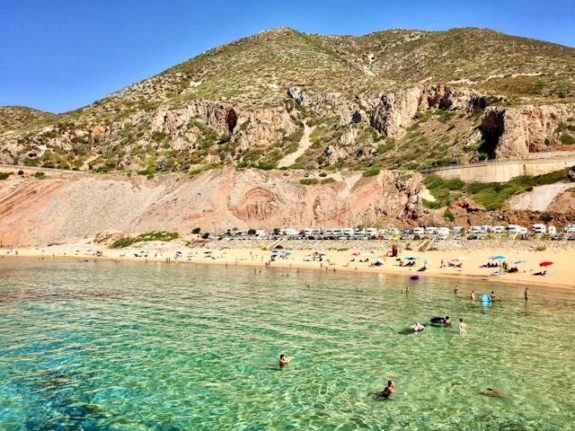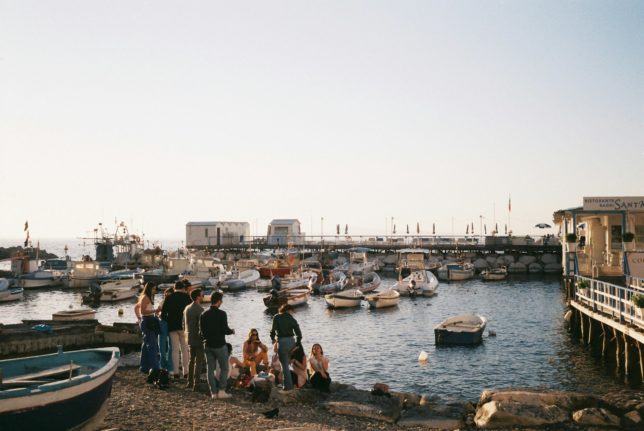Look at a map of any part of Italy and you’re likely to find some place names that will raise an eyebrow; there’s the town of Pozzo dell’Inferno (hell’s well) in Lazio, Casa del Diavolo (the devil’s house) in Umbria, or you could visit the hamlet of Sesso (sex) in Emilia-Romagna.
But you don’t need to speak Italian at all to find some of Italy’s place names amusing.
Arsoli
Anglophones might expect this sleepy town outside Rome to have a few unpleasant residents. The name doesn’t sound rude at all to Italians – innocently, it comes from the Latin name for a nearby hill (Arsula). Today, around 1,000 people are proud residents of Arsoli.
Bra
If you move to the pretty town of Bra, in Piedmont, you might have to put up with sniggers from English-speaking friends. You’d also have to watch out for the brazen bra thief of Bra who was once put under house arrest for repeatedly swiping women’s underwear from washing lines.
READ ALSO: The one Italian word that English speakers find alarming
Angri
Are the 34,000 inhabitants of this town constantly in a bad mood? You might worry that you’d be treading on eggshells in this corner of sunny Salerno, but luckily the name in Italian has nothing to do with temperament – it’s derived from the Latin word Angra, meaning cloudy water.
Bastardo
Unfortunately this town’s name means the same thing in both English and Italian, and its origins remain a mystery. Bastardo has “few redeeming features”, according to Wikitravel, and “is most certainly the least attractive town in Umbria”.
Orgia
Inviting someone to this hilltop town could lead to misunderstandings – the meaning in Italian is exactly what it sounds like to English speakers. In the midst of a forest in Tuscany, there’s plenty of privacy for a gathering in Orgia.
READ ALSO: 12 rude Italian phrases that you can get away with in Italy
Purgatorio
Theologians have argued for centuries about whether purgatory exists and what it might be like. But this town’s residents know the answer. In fact, Italy has two towns called Purgatorio: one in Sicily, the other in Campania.
Buggerru
Think twice before telling Anglophone friends you’re going here for the day. This pretty town on Sardinia’s rugged west coast is a popular tourist spot, which is in fact named after a local coal miner named Eccidio Buggeru.
Are there any other Italian place names that should be added to the list? Let us know in the comments section below.



 Please whitelist us to continue reading.
Please whitelist us to continue reading.
Bastardo was supposedly originally “l’osteria del bastardo”, a coaching inn on the Via Flaminia, around which the modern town sprang up to service the agricultural country around. At some point in the 1920s the “osteria” was dropped. Apparently every now and then the locals try and come up with something more dignified, but they’ve never agreed on what, so it stays “bastardo”.